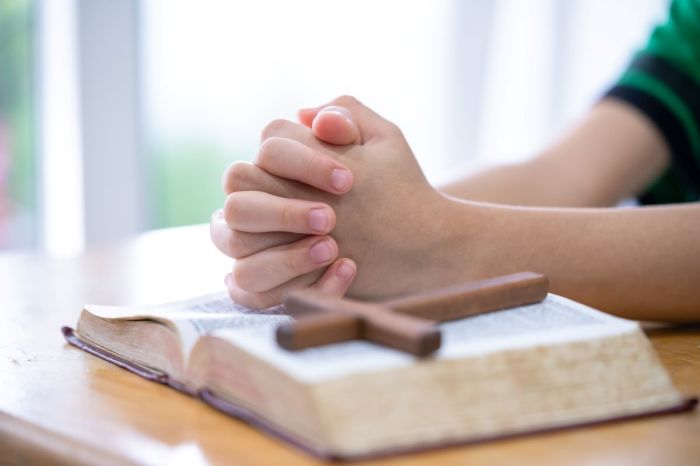
A bill seeking to allow Texas public and charter schools to hold voluntary prayer and readings of religious texts has stalled after lawmakers failed to take action on the legislation.
The House Committee on State Affairs grappled with Senate Bill 11, which would allow school boards to decide whether to carve out time for private prayer or readings from religious texts, such as the Bible. The bill, which passed the Senate 24-6 in March, sparked intense debate last Wednesday before being left pending at the session’s close, signaling further deliberation ahead.
Authored by Sen. Mayes Middleton, R-Galveston, and introduced in the House by Rep. David Spiller, R-Jacksboro, SB 11 would require parental consent in order for students to participate in any prayer or reading from the Bible or other religious text. According to Spiller, prayers and reading from any religious text would be permitted, and the bill explicitly prohibits the use of public address systems for these activities and mandates that they occur outside of instructional time.
“This initiative is about restoring local control and providing communities with the opportunity to reflect their values within their schools,” Spiller said in a statement Wednesday. “It respects individual freedoms while allowing those who wish to engage in prayer and scripture reading the space to do so.”
He pointed to the U.S. Supreme Court’s 2022 ruling in Kennedy v. Bremerton Independent School District, which affirmed a Washington high school football coach’s right to pray on the field during and after games, citing protections under the First Amendment’s Free Exercise and Free Speech clauses.
Spiller told lawmakers that SB 11 empowers local school districts to shape their policies.
“Someone has an opportunity to read the Bible, someone has an opportunity to read some other religious texts, and that other religious text is not defined,” Spiller said.
While the bill received both praise and criticism during the hearing’s public comment segment, the Rev. Jody Harrison, a Baptist minister speaking for Texas Impact, a progressive interfaith group, delivered a dire warning of “Christian nationalism.”
“You are prioritizing in this bill one type of Christianity over all of your constituents’ children and grandchildren,” Harrison claimed. “How would you feel having their religious beliefs prioritized over your children or grandchildren in their classrooms?”
Harrison also warned that “prioritizing” Protestant Christianity could lead to further issues.
“When I was in grade school, the Protestant Lord’s Prayer was said every day over the loudspeaker,” she said. “Every day, I stumbled over it, was noticed, and made fun of by Protestant children. This opens up the same type of door for any other religion that is different from the one being presented.”
Lawmakers opted to take no committee action on SB11, leaving any future path to a full House vote uncertain.
The legislation is similar to a bill passed by Texas lawmakers in April that would allow teachers and school employees to pray or engage in religious speech while on duty in public schools.
Senate Bill 965, which passed with a 22-9 party-line vote in the Republican-led chamber, states “the right of an employee of a school district or open-enrollment charter school to engage in religious speech or prayer while on duty may not be infringed on by the district or school or another state governmental entity” with narrow exceptions.
Currently, Texas law affirms the right of public school students to pray in public schools as long as participation in that prayer is voluntary, stating that “a person may not require, encourage, or coerce a student to engage in or refrain from such prayer or meditation during any school activity.”
The Texas Education Code also establishes a school district’s ability to institute a “minute of silence” at the start of the first class of each school day, during which a student may have the opportunity to “reflect or meditate” as they see fit.

















